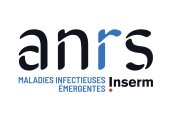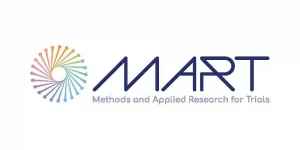Clinical evaluation of an innovative French vaccine candidate against COVID-19: ANRS0640s LKV-PAN-01 (PanCoV) study
 |
 |
 |
 |
 |
Paris, June 18th 2025
PRESS RELEASE
Five years after the COVID-19 pandemic, the SARS-CoV-2 virus is still present. Vaccines against COVID-19 have saved millions of lives, but the protection they offer is short-lived and limited in scope, requiring frequent updates and boosters. In order to meet this public health challenge, an innovative, broad-spectrum French vaccine candidate, the EDC.Pan.CoV (CD40.Pan.CoV) vaccine, has been developed by the Vaccine Research Institute (VRI) and EnnoDC (formerly LinKinVax). A multicentre phase I/II clinical trial, sponsored by Inserm-ANRS MIE, has just begun in France to assess the vaccine safety and ability in inducing a more appropriate, rapid and durable immune response than current vaccines.
On May 5th 2023, World Health Organization (WHO) declared the end of the global public health emergency caused by the SARS-CoV-2 virus; however, this does not mean that the disease is no longer a threat. The SARS-CoV-2 virus is still circulating. RNA vaccines changed the course of the COVID-19 pandemic and enabled most of us to return to normal life. While they provide effective protection against severe forms of the disease, they have two shortcomings: the immunity they offer only lasts a few months, and they face challenges related to the continuous wave of new SARS-CoV-2 variants. The aim is therefore to obtain longer-term, more effective, broad-spectrum protection, covering the variants of concern (VOC) responsible for serious infections in at-risk individuals. Teams from Vaccine Research Institute (VRI), Inserm, université Paris-Est Créteil and EnnoDC have designed and developed a novel vaccine that for the first time enables targeted and controlled in vivo activation of dendritic cells (DCs), the immune cells that orchestrate immune memory which constitutes the basis for vaccination.
The EDC.Pan.CoV vaccine candidate (CD40.Pan.CoV) acts as both an immune checkpoint activator1 and a multivalent vaccine. The vaccine is composed of an anti-CD40 antibody fused to part of the Spike protein (the cell receptor binding domain (RBD) carrying VOC mutations) and nucleocapsid proteins (N) of SARS-CoV2. It specifically binds and activates the cell surface receptor CD40 on DCs, while presenting these cells with several SARS-CoV-2 antigens. Once activated, DCs will enable the induction of a rapid and long-term broadspectrum cellular and humoral immune response2.
“As its name suggests, EDC.Pan.Cov (CD40.Pan.CoV) is a broad-spectrum Dendritic Cell (DC) Engager. It contains a region of the Spike protein (the main portal of virus entry into the host cell), containing mutations common to all SARS-CoV-2 variants and viruses of the same family (sarbecoviruses), and a highly conserved region of the coronavirus nucleocapsid protein (the envelope that protects its RNA)” points out Dr Mireille Centlivre, VRI Chief operating officer and EnnoDC Chief R&D officer. “This vaccine candidate is designed to protect against a wide range of viruses in the coronavirus family, including some that could emerge.” “Once primed by these antigens and activated via CD40, dendritic cells will in turn induce the activation and proliferation of specific B and T lymphocytes,” explains Prof. Yves Levy, CEO of VRI and Scientific Director of EnnoDC. “Thanks to its unique mechanism of action, EDC.Pan.CoV (CD40.Pan.CoV) should make it possible both to produce broad-spectrum neutralizing antibodies3 capable of preventing numerous variants from infecting host cells and to generate memory cells, an essential prerequisite for long-term protection”.
Sponsored by Inserm-ANRS MIE and coordinated by Prof. Jean-Daniel Lelièvre, Director of the VRI Clinical Department, PanCoV (ANRS0640s LKV-PAN-01) is a multicentre, phase I/IIa, open-label, dose-escalation clinical trial. The primary objective is to determine the safety and immunogenicity of the EDC.Pan.CoV (CD40.Pan.CoV) vaccine in healthy volunteers. The study design and the methodological and operational management were assigned to UMS 54 MART (Inserm, University of Bordeaux), a Clinical Trials Unit led by Prof. Linda Wittkop. Recognised for its expertise in clinical trial methodology in vaccinology, this unit has been in charge of studies sponsored by the Inserm-ANRS MIE since 1997.
A total of 48 adult participants, aged 18 to 64, benefiting from a complete vaccination regimen(a booster dose administered at least six months prior to study inclusion) will be distributed into four cohorts. EDC.Pan.CoV (CD40.Pan.CoV) administered subcutaneously, will be evaluated at low (0.25 mg) and moderate (1 mg) doses, with or without adjuvant (Hiltonol®). After vaccination, all volunteers will be followed for at least six months. Seven university hospital centres from the I-REIVAC national vaccinology clinical research network are taking part in the trial: Henri-Mondor hospital in Créteil (Prof. Jean-Daniel Lelièvre), Cochin (Prof. Odile Launay) and Saint-Louis (Dr Juliette Soret-Dulphy) hospitals in Paris, and the university hospital centres in Nantes (Dr Maeva Lefebvre), Caen Normandie (Prof. Renaud Verdon), Clermont-Ferrand (Dr Christian Duale) and Lille (Prof. Dominique Deplanque).
Designed to induce a broad response against SARS-CoV-2 and its variants, the EDC.Pan.CoV (CD40.Pan.CoV) vaccine candidate responds to the WHO’s concern to have broad-spectrum vaccines regarding virus evolution issues. It is also designed to produce a more durable immune response with its mechanism of action. Finally, it addresses the safety and affordability. concerns (with and without adjuvant) of other vaccines against COVID-19. Taken together, these features make it a potentially suitable vaccine for addressing the public health challenge of COVID-19.
“RNA vaccines have been administered to billions of people and have saved almost 20 million lives4 , but SARS-CoV-2 and related viruses are constantly circulating and evolving all over the world” points out Prof. Jean-Daniel Lelièvre, Head of the Clinical Immunology and Infectious Diseases Department at Henri-Mondor Hospital and principal investigator of this study. “More than ever, therefore, we need a new vaccine approach that is even more effective, broad-based and sustainable. We are very hopeful about EDC.Pan.CoV (CD40.Pan.CoV), and the encouraging initial clinical data obtained in HIV5 and cancer6 by other members of this new class of immunotherapy further strengthens our conviction”
Ethical considerations and expected benefits
Individual benefit: This phase I/IIa study is being conducted in healthy volunteers who will be informed
of their antibody titres (the amount of specific antibody produced) in relation to the vaccine received. By
extrapolation, an increase in neutralising antibodies induced by the vaccine candidate could provide an
individual benefit, although this potential benefit was not assessed in this study.
Collective benefit: The study will make it possible to assess the potential of EDC.Pan.CoV
(CD40.Pan.CoV) as a booster vaccine, i.e. its ability to extend the scope, scale and durability of
responses against a broad spectrum of at-risk variants.
___________________
- 1. Checkpoints are immune system control mechanisms that can regulate the degree of immune activation and prevent autoimmune responses.
- 2. The one that produces antibodies.
- 3. Specific antibodies that prevent infection by blocking the virus from entering target cells.
- 4. Global impact of first year of COVID-19 vaccination: a mathematical modelling study. Oliver Watson, et al Lancet Infect Dis, Sept 2022
- 5. Un-adjuvanted CD40.HIVRI.Env vaccine late boost induces durable immune responses: ANRS VRI06 trial. Yves Levy, et Abstract 426, CROI, March 9-12, 2025, San Francisco, USA.
- 6. Preliminary results of a multicentric randomized Phase I/IIa trial of an immunotherapy targeting Dendritic Cells, CD40HVac, in patients with HPV16-positive oropharyngeal carcinoma. Caroline Even, et al. Abstract 157P, ESMO IO, Dec 11-13, 2024, Geneva, Switzerland
About ANRS MIE: ANRS Emerging Infectious Diseases is an autonomous agency of Inserm. Its mission is to facilitate, evaluate, coordinate and fund research into HIV/AIDS, viral hepatitis, sexually transmitted infections, tuberculosis and emerging and re-emerging infectious diseases.
ANRS MIE has recognised expertise in promoting clinical trials in France and internationally.
For more information: https://anrs.fr/en/
About the VRI: The Vaccine Research Institute (VRI), certified “Laboratory of Excellence” by the French
government in 2011, was establishedby ANRS MIE and université Paris-Est Créteil (UPEC) to conduct research aimed at accelerating the development of effective vaccines against HIV/AIDS and (re-)emerging infectious diseases. The VRI’s structure strengthens the links between basic research and translational research, patient associations and the socio-economic world. VRI, directed by Professor Yves Lévy (UPEC-APHP), extends a network of internationally renowned scientists and research teams with multidisciplinary expertise in systems biology and clinical immunology, a network of clinical centres and shared platforms.
For more information: https://vaccine-research-institute.fr/
About EnnoDC: A spin-off from VRI, EnnoDC is a French clinical-stage biotechnology company designing and developing “DC Engagers”, a new class of immunotherapy antibodies that combine the precision of immune checkpoint modulators with the durability of vaccines. EnnoDC’s candidates engage, prime and activate dendritic cells in vivo to induce a precise, broad and durable immune response in patients with cancers or most resistant viral infections. Following an initial clinical validation in HIV with the results obtained by Inserm-ANRS MIE (ANRS VRI06 trial), the company is a partner in a clinical trial in COVID-19 sponsored by Inserm-ANRS MIE, and is also conducting two development programmes in HPV-positive oropharyngeal cancer and prostate cancer.
For more information: https://ennodc.com/
About Inserm: Founded in 1964, Inserm (Institut national de la santé et de la recherche médicale) is a public scientific and technological institute dedicated to biomedical research and human health, and is involved in the entire range of activities from the laboratory to the patient’s bedside. It also partners with the most prestigious research institutions in the world that are committed to scientific challenges and progress in these fields.
For more information: https://www.inserm.fr/en/home/
About université Paris-Est Créteil: With 14 faculties, schools and institutes, 1 observatory and 32 research laboratories, université Paris-Est Créteil has been active in all fields of knowledge since 1970. Each year, UPEC trains over 42,000 students and working professionals of all ages. A major player in the dissemination of academic, scientific and technological knowledge, the university offers more than 500 training courses in all disciplines and at all levels. UPEC offers personalized support for all successes, thanks to undergraduate and graduate training, recognition of prior learning and lifelong learning opportunities. Furthermore, the university runs a growing number of apprenticeship programmes in order to stimulate entrepreneurship and ease professional integration. Université Paris-Est Créteil has built its strategic plan around three strategic orientations: UPEC is an engaged university that aims to match academic excellence with societal relevance. It encourages and supports all paths of students’ success with dedicated programmes. UPEC masters its trajectory and is a university open to the world and its diversity.
For more information: https://www.en.u-pec.fr/
About UMS 54 MART: The UMS 54 MART “Methods and Applied Research for Trials”, CMG ANRS MIE since 1997, is an academic Clinical Trials Unit (CTU) supported by Inserm and the University of Bordeaux and led by Prof. Linda Wittkop. In recent years, the unit has continued its involvement in infectious diseases, acquiring specific expertise in clinical trial methodology in vaccinology through its close interaction with the F-CRIN/EUCLID platform, its involvement in Vaccine Research Institute (VRI) projects and the F-CRIN/I-REIVAC network, and its links with the Inserm/Inria SISTM team dedicated to data science in vaccinology. ISO 9001 certified since 2009, MART CTU provides the full range of clinical trial management activities from study design to reporting to Competent Authorities and dissemination.
For more information: https://www.ums-mart.fr/
Press contact: ANRS MIE
presse@anrs.fr